For all touring trips it is essential you ski with an all-mountain/freeride type skis, ski touring boots and ski touring bindings. If you have your own skis but they do not have ski touring bindings then you will need to rent skis. The same applies if you have downhill ski boots, you will need to rent ski touring boots.
Skis
This winter our lead guides are using Elan skis. Praised by magazine testers and professional skiers alike for its unique blend of lightweight performance, the Ripstick 96 is proven to be the ultimate freeride ski in all snow conditions. The Ripstick 106 is the ultimate freeride ski for any terrain. From boundary line to the base lodge, peak to the parking lot, and trailhead to tailgate this ski excels in all conditions. The new Ripstick Tour 94 is designed on a wider platform, enabling the skier to float better, ski faster, and turn easier in backcountry conditions.
It is built to blend high performance at a low weight, for the perfect mix of freeride downhill performance and efficient ascending capability. With Ripstick Tour 94, the confidence to conquer long ascents and charge challenging descents is the name of the game.
There are many ‘all-mountain/freeride’ skis to choose from and we also recommend skis from Salomon, Dynastar, Movement, Black Crows, Trab Skis, Scott and Volkl. Look for a ski that is the right size for your height, typically the tip of the ski should be somewhere around your nose height. As for the width of the ski or “side cut” a mid-fat ski – 90-110mm under the foot is a good place to start; this offers plenty of flotation off-piste while remaining suitable for day tours and they should also handle reasonably well on piste and mixed terrain.
Elan Skis: www.elanskis.com
Dynastar Skis: www.dynastar.com
Movement Skis: www.movementskis.com
Black Crows Skis: www.blackcrows-skis.com/
Trab Skis: www.skitrab.com/en-us/
Scott Skis: http://www.scott-sports.com
Volkl Skis: http://www.voelkl.com
There are plenty of other great skis to choose from so if you’re planning on buying skis for ski touring or general skiing and have any questions do not hesitate to call us, or Lockwoods, to discuss the options available.
If you are planning on buying skis for ski touring and general skiing and have any questions do not hesitate to call us to discuss the options available to you.
Boots
It is essential that you have ski touring boots for these trips as walking uphill is much more comfortable in these types of boots with a walk mode and great flex; a dedicated touring boot or a hybrid hike & ride boot is best.
Our guides are using ROXA boots. They recommend R3 ski boots, the lightest high-performance alpine ski boot in its class. The 110 TI is geared for big mountain chargers who may use “Tech” and/or Alpine bindings and often hike or skin to find their lines. The RX Tours is targeted toward skiers who prefer to blaze their own trail and leave the lift lines behind.
Scarpa has led the way in touring boots for many years but they have been joined by other manufacturers like Dynafit, Salomon, Scott, Black Diamond, Dalbello and K2; all producing their own versions of ski touring boot.
ROXAR3 and RX Tour ski boots provide a range of models suitable for all sorts of terrain and snow conditions. It is a family-owned company located in Italy, focused on advanced materials, and ultralight compounds and one of the first companies to use
• Scarpa’s Freedom boots are their Hybrid offerings, with great ski performance, a walk mode and Vibram sole. Their Maestrale (men’s) and Gea (women’s) boots are also highly recommended.
• The Scott Celeste and Cosmo boots have stood the test of time and are good all-around choices.
• Salomon’s Quest Max series offer boots with a walk mode in various flex’s with good downhill performance.
• Dynafit offer the Mercury or Vulcan boots plus a range of lightweight options like the TLT6.
The best of the rest are:
Fischer - Transalp
Black Diamond – Quadrant and Factor
K2 – Pinnacle boot
Dalbello – Lupo or Sherpa
Langue – XT series offer a ski boot with a walk mode in various flex options
Boot Liners
These days many manufacturers offer ‘thermo-fit¹ liners as standard equipment. You may also want to consider a custom liner as these are heated and molded to your foot and boot for a perfect fit. They can make all the difference especially if you have trouble finding really comfortable ‘off-the-shelf’ boots. Zipfit liners are a great option for anyone seeking total customisation in fit and comfort. They will replace the original liner.
Custom Footbeds
Essential kit – to provide additional comfort and ski control. If you want to get footbeds made or a pair of new boots fitted then we suggest you visit somewhere like Profeet for a professional fitting. Don’t forget if you have footbeds in your downhill boots but need to rent touring boots then you can bring the footbeds with you and put them in the hire boots.
Bindings
For all ski touring trips ski touring bindings are essential. Fritschi and Marker both make excellent ski-touring bindings and you have a few different options to choose from. Many more people are seeing the advantage of the “pin” binding system now offered by a number of manufacturers as these are light and offer ever-improving security despite their minimalist looks!
It’s essential you have ski touring bindings on your skis. Although Pin bindings have been around since the Dynafit Low Tech bindings over 30 years ago since their patent expired the technology has advanced substantially. Salomon, with their Shift Binding, are at the forefront; they’re ‘multi norm compatible’ so fit a selection of boots and are lighter than most freeride bindings. Our lead guides are using the Shift binding this winter, so if you’d like to know more about them give Lockwoods a ring.
Ski Poles
We recommend telescopic poles. They must have wide powder baskets (4-5 inches/100-120mm diameter) otherwise you’ll be up to your armpits on the ascents. Go for an alloy rather than carbon poles which are lighter but have a nasty habit of snapping near the basket due to ski edge nicks.
Rucksack
For most ski tours especially multi-day hut-to-hut tours you will need a 35 - 40 litre rucksack. You might get away with a big 30 liter pack if you are an experienced ski tourer and know what to pack. Most people will find a 35-40 liter pack is a good size for touring.
Key features of a good ski touring pack:
- a method of attaching your skis in either an A-frame (one either side) or both together on a diagonal ski carriage
- easy access into the main compartment without having to empty the sack to get something at the bottom
- separate pocket for avalanche shovel, handle and probe
- small top pocket for items like wallet, sunglassed/goggles etc; an ice axe loop
- built-in rain cover and a secure method of attaching/stowing a ski helmet
- good hip/waist belt and adjustable shoulder straps
Ortovox Haute Route 40 rucksack will be a good choice for ski touring trips.
Avalanche airbag rucksacks can be used for touring but they are heavy, adding somewhere between 5-8kg just for an empty pack plus canister. So unless you are sure you can carry it and fit all you need in, we do not recommend you use one.
Over a long multiday tour, every gram of weight is important as you have to carry and move it yourself. Carrying a heavy pack will hinder and tire all but the most experienced and fit ski tourer.
 Off-Piste
Off-Piste Ski Touring
Ski Touring Via Ferrata
Via Ferrata Ice Climbing
Ice Climbing Alpine Glacier Trekking
Alpine Glacier Trekking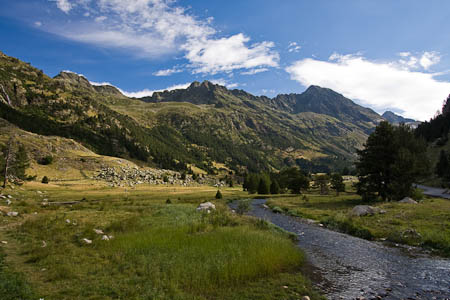 Worldwide Trekking
Worldwide Trekking





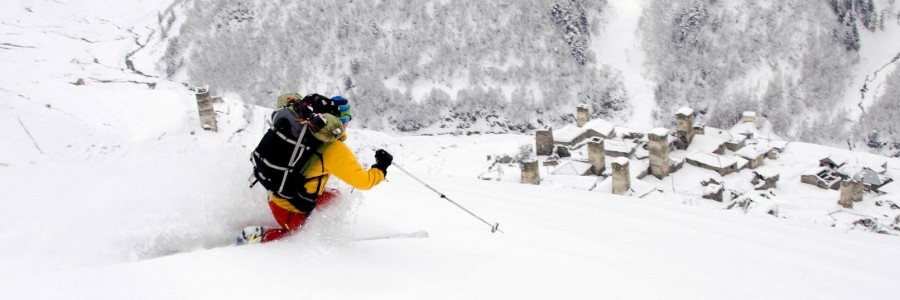
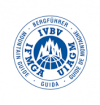

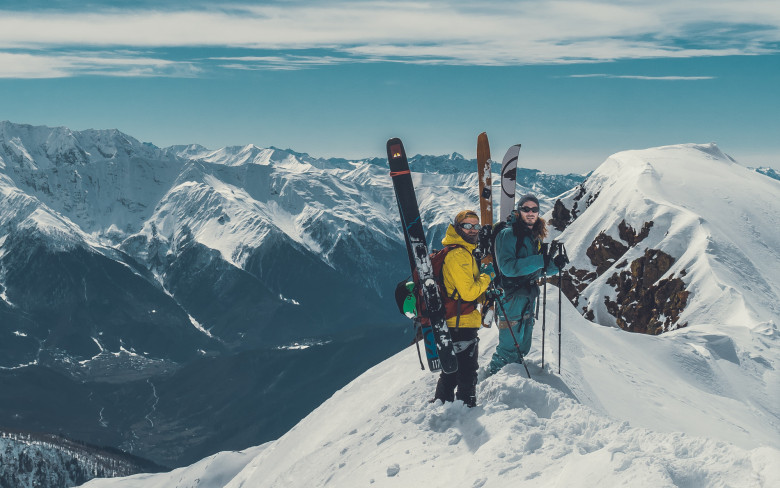
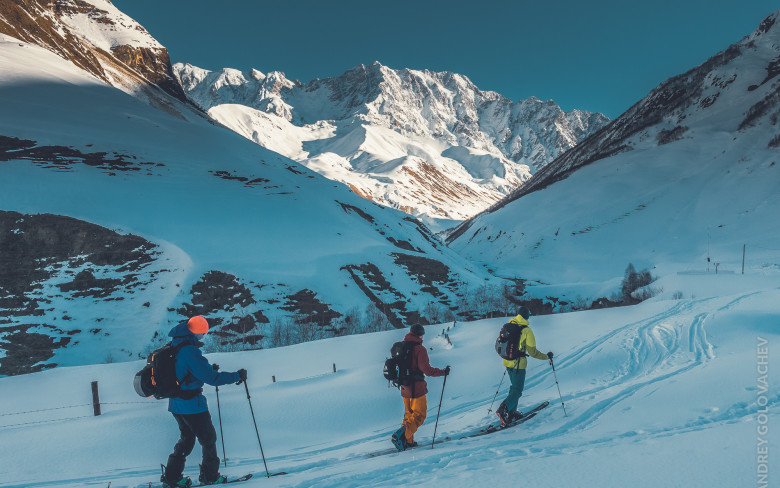
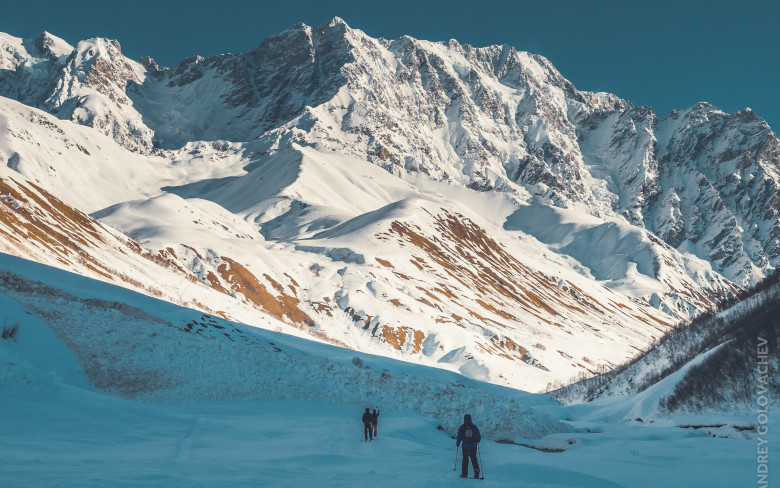
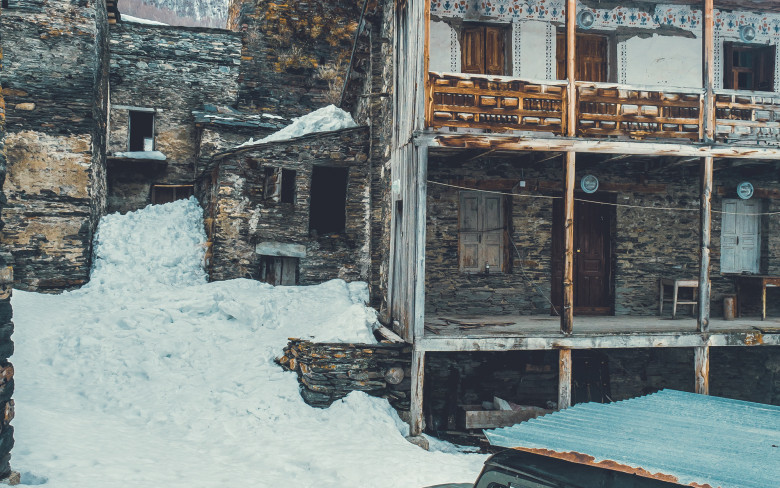
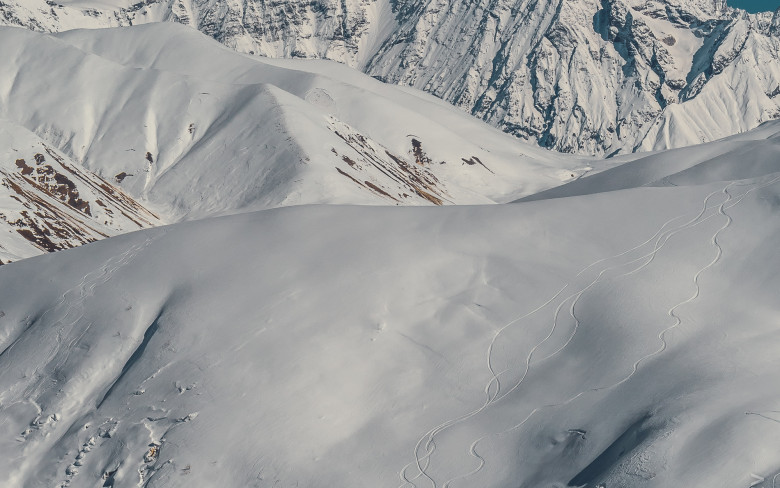
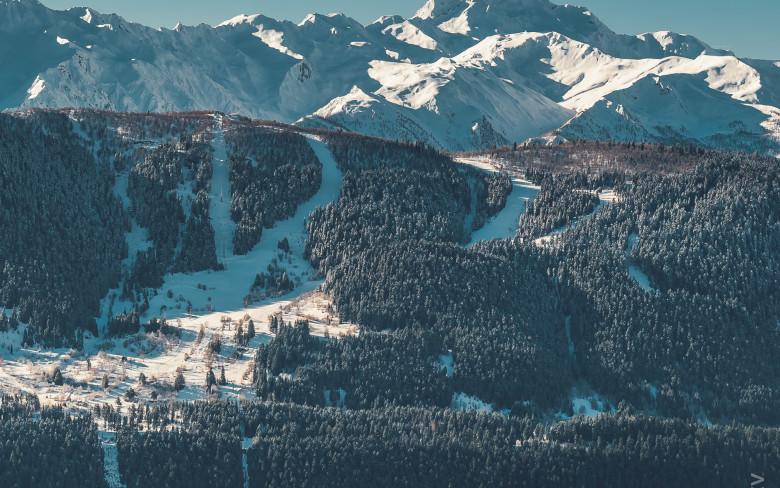
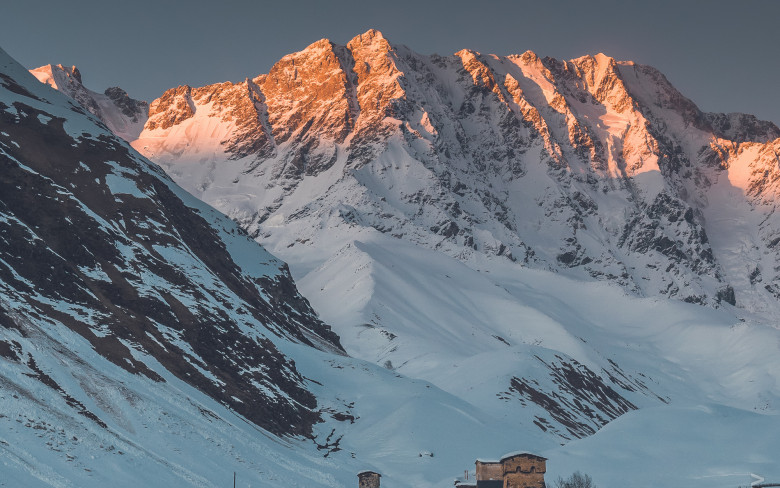
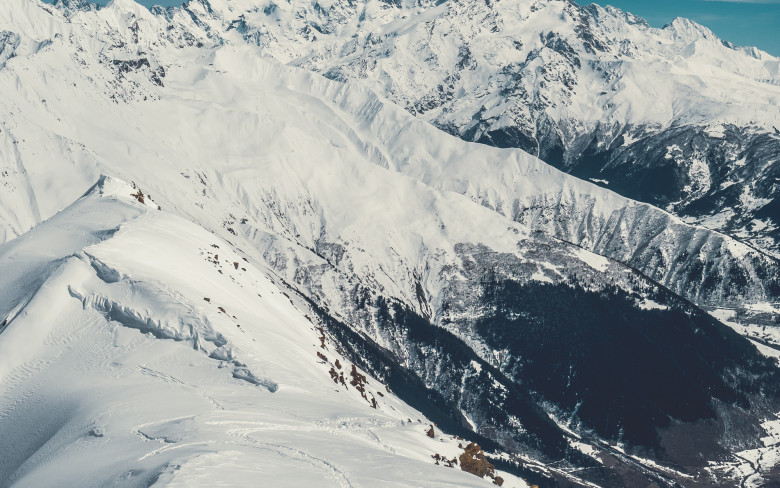
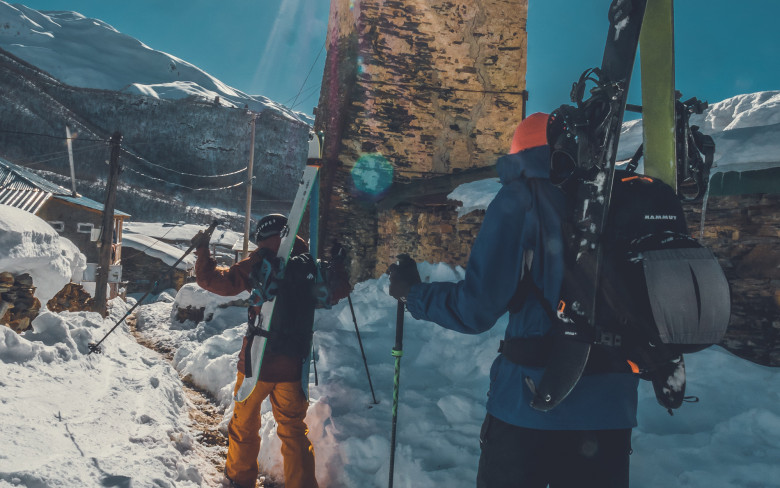
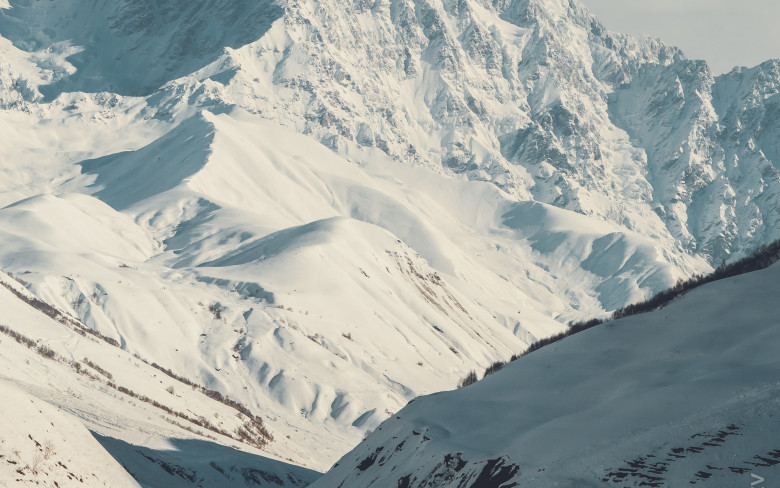
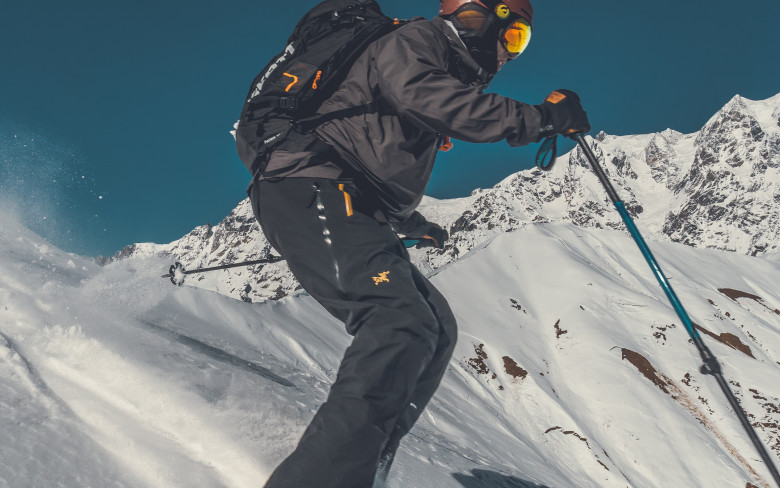
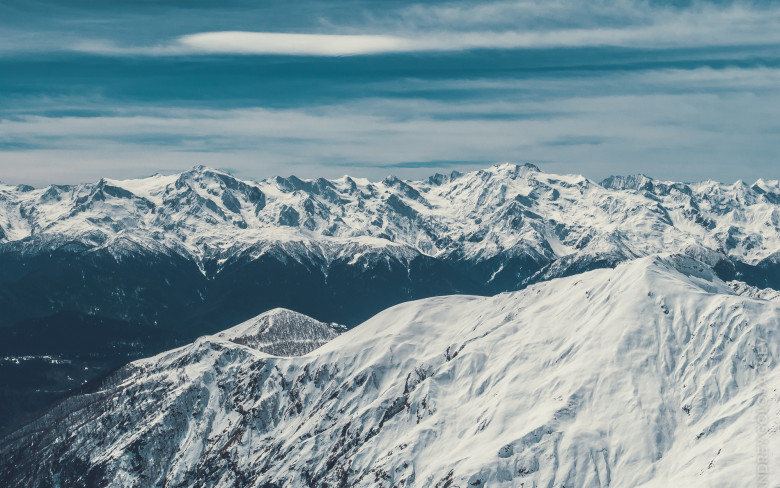
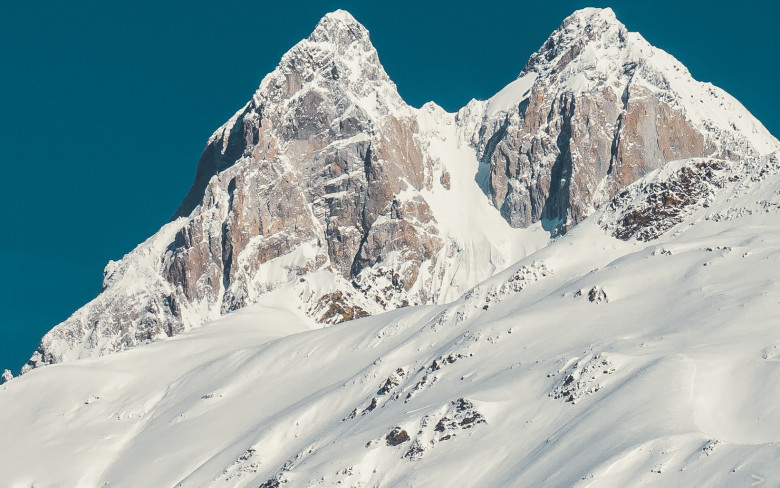
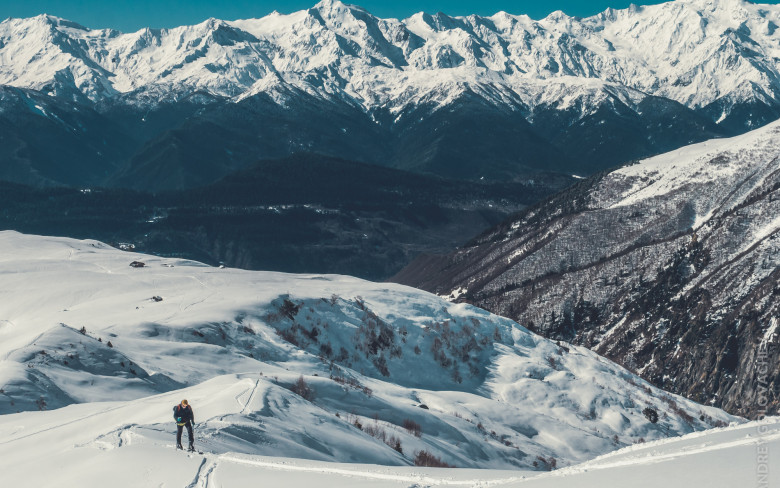
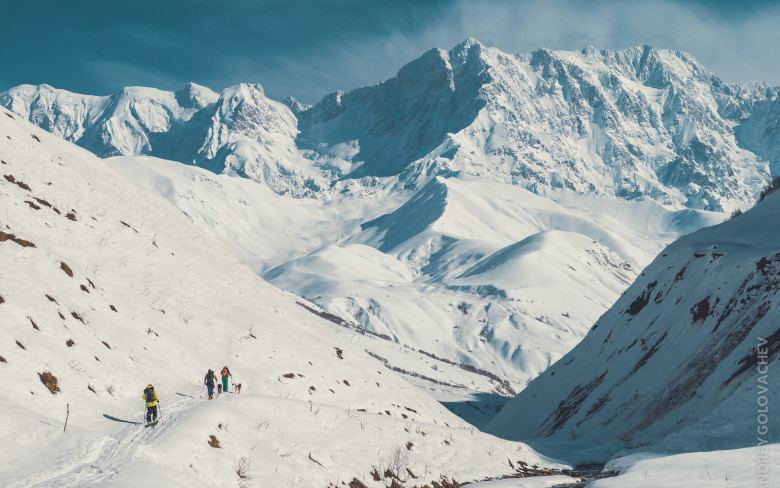
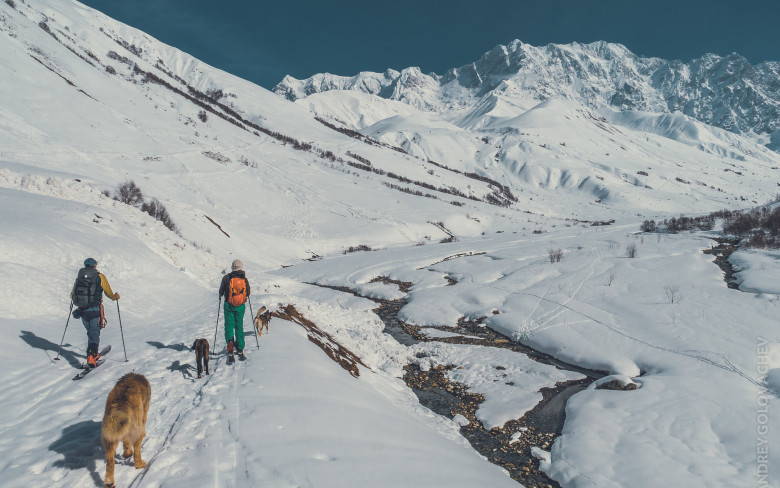
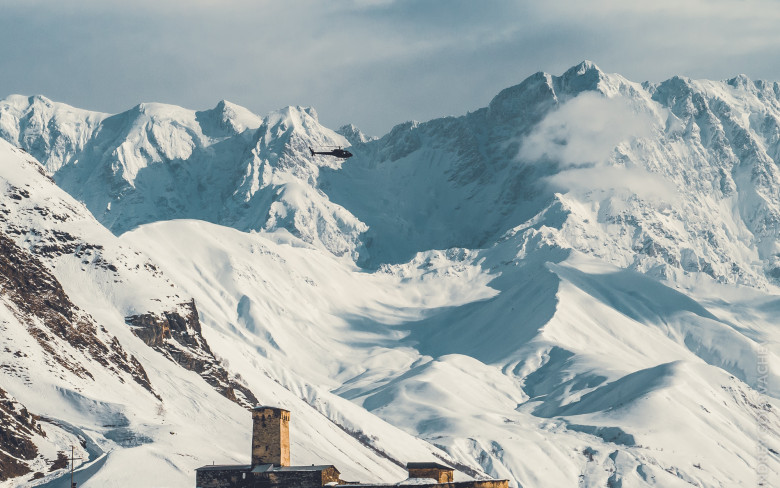
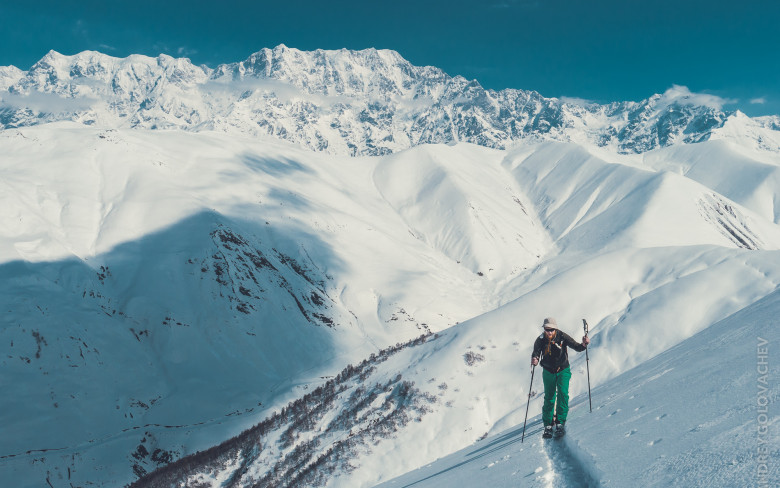
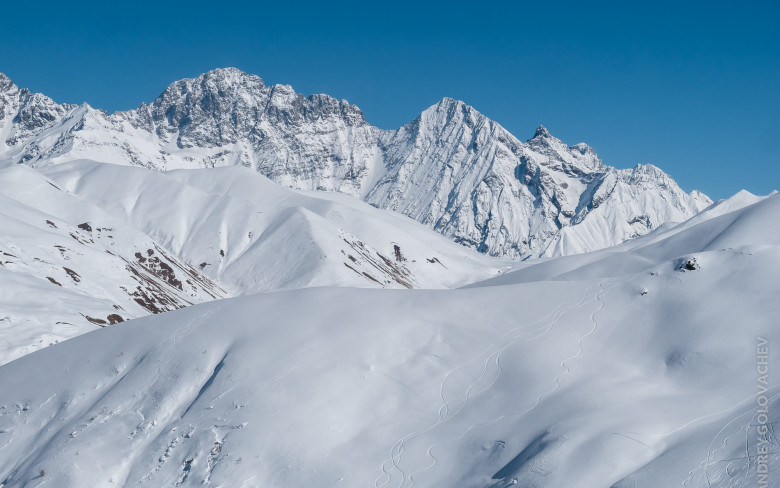
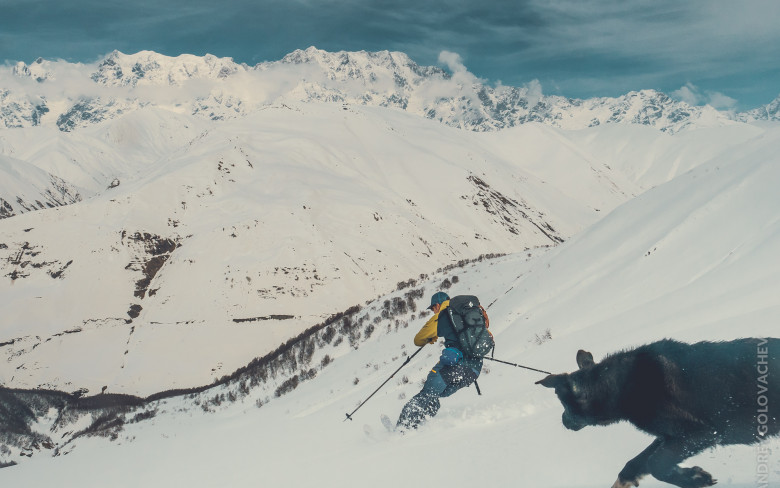
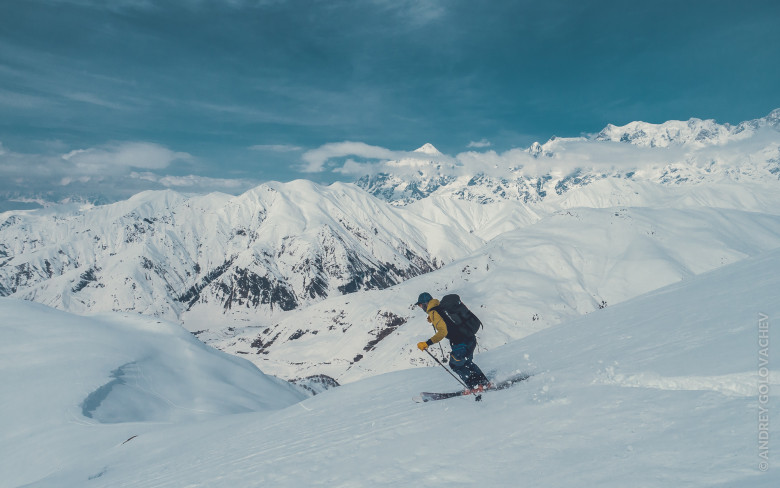
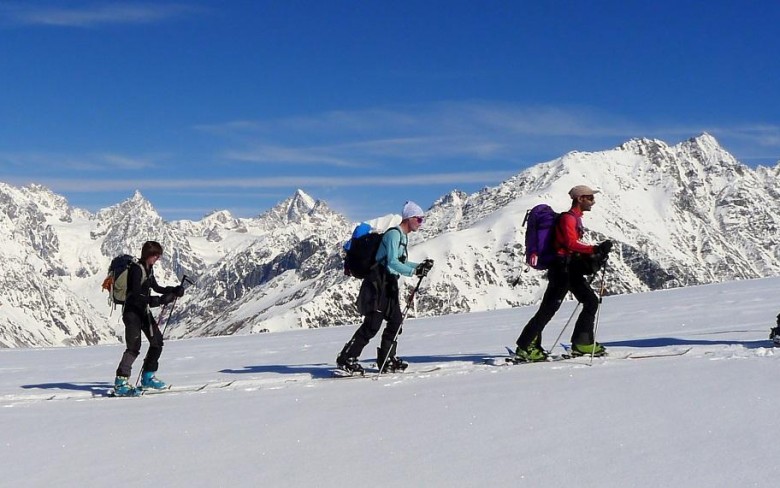
 Travel Website Development
Travel Website Development